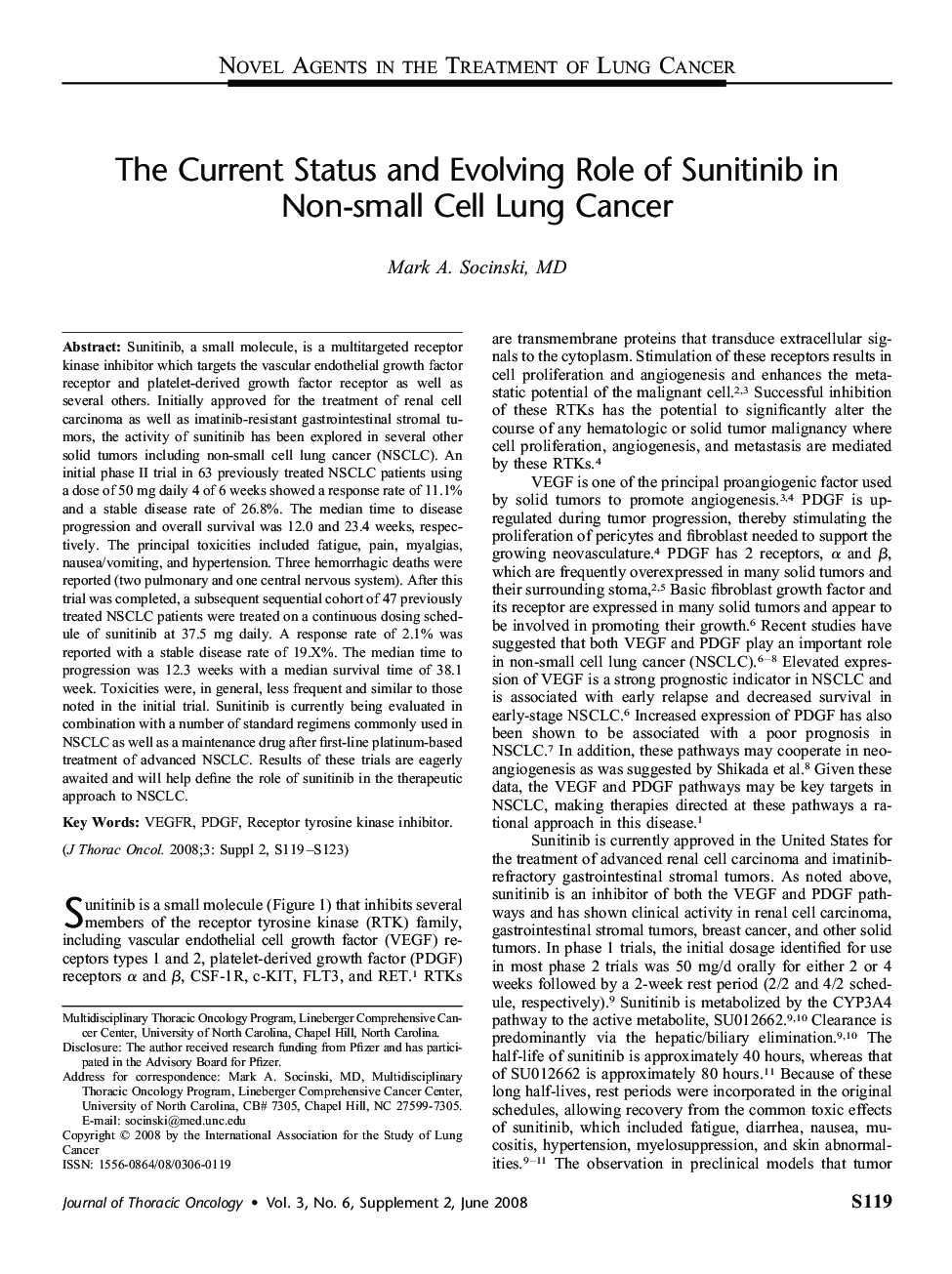| Article ID | Journal | Published Year | Pages | File Type |
|---|---|---|---|---|
| 3991894 | Journal of Thoracic Oncology | 2008 | 5 Pages |
Abstract
Sunitinib, a small molecule, is a multitargeted receptor kinase inhibitor which targets the vascular endothelial growth factor receptor and platelet-derived growth factor receptor as well as several others. Initially approved for the treatment of renal cell carcinoma as well as imatinib-resistant gastrointestinal stromal tumors, the activity of sunitinib has been explored in several other solid tumors including non-small cell lung cancer (NSCLC). An initial phase II trial in 63 previously treated NSCLC patients using a dose of 50 mg daily 4 of 6 weeks showed a response rate of 11.1% and a stable disease rate of 26.8%. The median time to disease progression and overall survival was 12.0 and 23.4 weeks, respectively. The principal toxicities included fatigue, pain, myalgias, nausea/vomiting, and hypertension. Three hemorrhagic deaths were reported (two pulmonary and one central nervous system). After this trial was completed, a subsequent sequential cohort of 47 previously treated NSCLC patients were treated on a continuous dosing schedule of sunitinib at 37.5 mg daily. A response rate of 2.1% was reported with a stable disease rate of 19.X%. The median time to progression was 12.3 weeks with a median survival time of 38.1 week. Toxicities were, in general, less frequent and similar to those noted in the initial trial. Sunitinib is currently being evaluated in combination with a number of standard regimens commonly used in NSCLC as well as a maintenance drug after first-line platinum-based treatment of advanced NSCLC. Results of these trials are eagerly awaited and will help define the role of sunitinib in the therapeutic approach to NSCLC.
Related Topics
Health Sciences
Medicine and Dentistry
Oncology
Authors
Mark A. MD,
